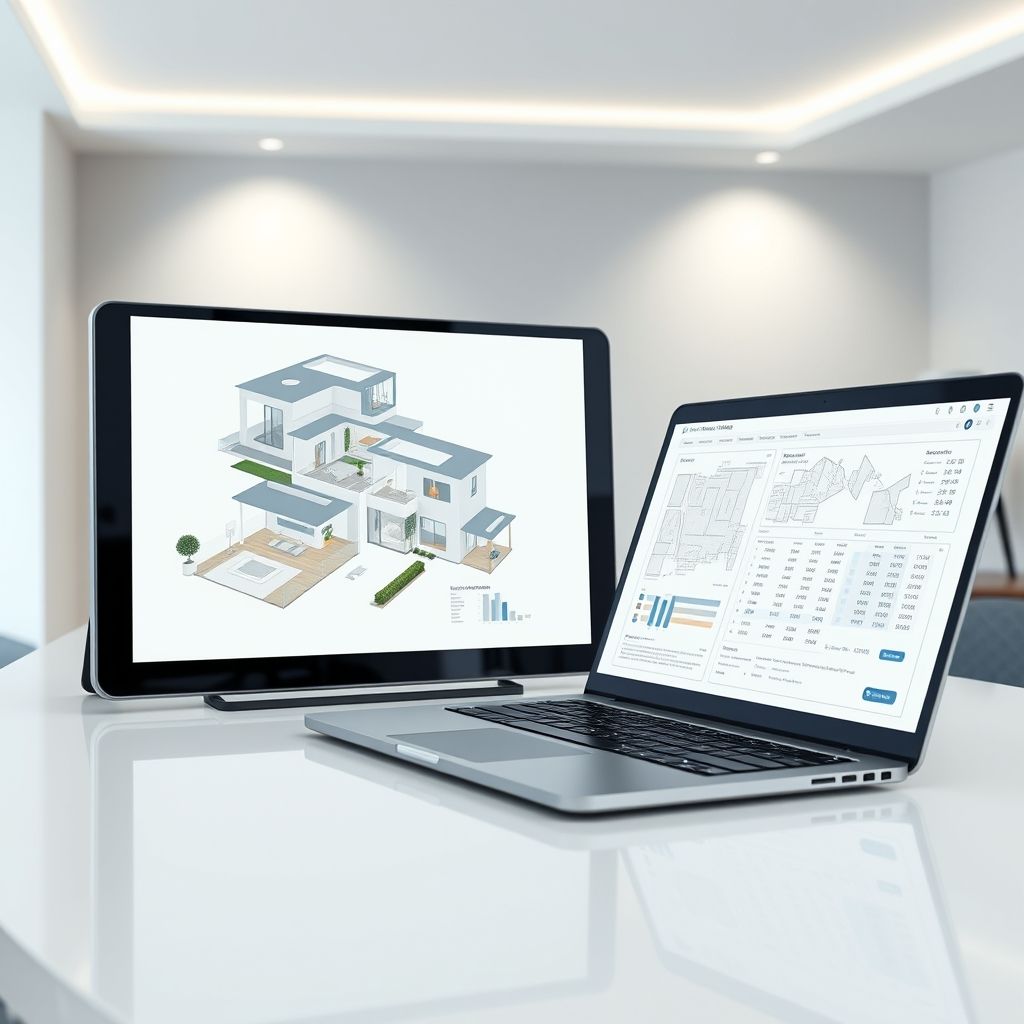In today’s fast-paced world, the combination of technology and traditional tradesmanship is revolutionising the home design and planning landscape for drywall and plastering contractors in Bruce, Australia. By adopting technology tools, you can enhance efficiency, improve quality control, and offer a more seamless service to real estate agents. Let’s explore some standout tech tools, quality control checklists, and processes that will help you stay ahead of the competition.
Section 1: Essential Technology Tools for Home Design and Planning
Tool 1: 3D Modeling Software
Invest in 3D modeling software to create realistic, interactive models of homes, enabling clients to visualise their renovations before any work begins. Some popular options include SketchUp, Revit, and AutoCAD.
Tool 2: Project Management Apps
Optimise your workflow by implementing project management apps like Trello, Asana, or Monday.com. These platforms help you keep track of tasks, deadlines, and team communication, ensuring a smooth and organised project execution.
Tool 3: Estimating and Invoicing Software
Accurately calculate costs and generate professional invoices with estimating and invoicing software like QuickBooks or Xero. These tools help you manage your finances easily and efficiently, keeping track of your revenue and expenses.
Section 2: Quality Control Checklists and Processes
Sub-section 1: Pre-construction Checklist
Ensure all necessary permits are in place, materials are ordered, and site preparation is complete before starting construction. This step helps prevent delays and ensures a smooth working environment.
Sub-section 2: On-site Quality Control
Implement quality control checks throughout the construction process. Regular inspections help identify potential issues early, reducing the risk of costly reworks and ensuring client satisfaction.
Sub-section 3: Post-construction Checklist
Carry out final inspections to ensure all work is completed to the required standard. This stage includes testing equipment, verifying measurements, and checking the overall appearance of the renovation.
Section 3: Cost-effective Renovation Contractor Solutions
Sub-section 1: Material Cost Calculation
Accurately calculate material costs by using a comprehensive database of building materials and their prices. This will help you provide cost-effective estimates to your clients.
Sub-section 2: Labour Cost Analysis
Analyse labour costs by considering factors such as hourly rates, overtime, travel time, and any additional expenses. This will help you create realistic and competitive quotes for your clients.
Sub-section 3: Time Management
Effectively manage your time to ensure projects are completed on schedule and within budget. Utilise tools like Gantt charts and work breakdown structures to plan and track your progress.
FAQs
Q: What technology tools are essential for home design and planning?
A: Essential technology tools include 3D modeling software, project management apps, and estimating and invoicing software.
Q: How can I ensure quality control during construction?
A: Implement quality control checks throughout the construction process by conducting regular inspections and identifying potential issues early.
Q: How can I provide cost-effective renovation solutions?
A: Calculate material and labour costs accurately, manage your time effectively, and provide detailed, transparent estimates to your clients.
Incorporating technology tools into your home design and planning process as a drywall or plastering contractor in Bruce, Australia, will help you stay competitive, offer a superior service, and ultimately grow your business. By adopting quality control checklists and processes using renovation contractor costs, you can ensure a seamless and efficient workflow that delights your clients and sets you apart from the competition.
Embrace the future of home design and planning – explore the latest technology tools and streamline your services today. Contact us for more information on the best tech solutions for your business.

